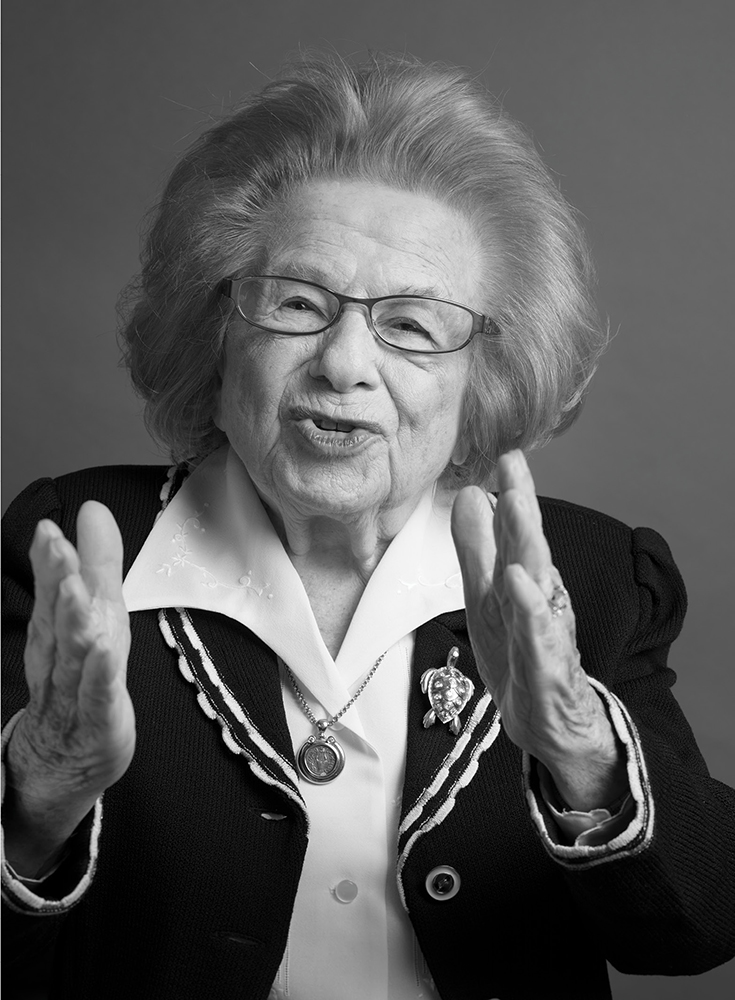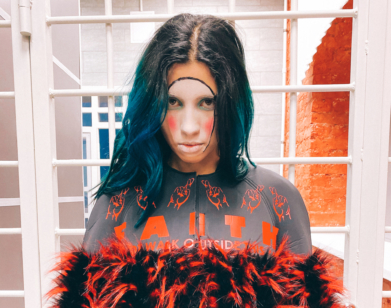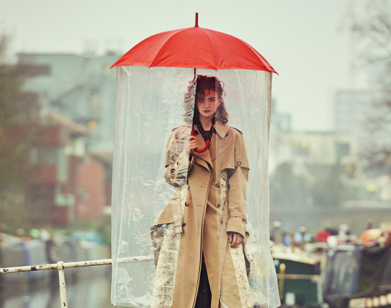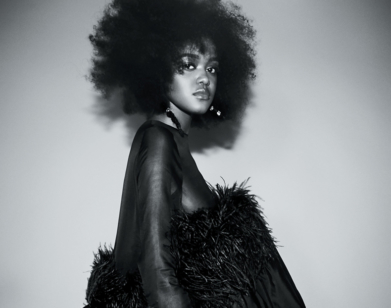Dr. Ruth Westheimer and Cecile Richards talk about sex, baby

DR. RUTH WESTHEIMER IN NEW YORK, JANUARY 2018. ALL CLOTHING AND ACCESSORIES: WESTHEIMER’S OWN. SITTINGS EDITOR: LISA JARVIS. HAIR: RUBI JONES/JULIAN WATSON AGENCY. MAKEUP: STEVEN CANAVAN USING DIOR/L’ATELIER NYC. MANICURE: YUKIE MIYAKAWA USING 7TRUE/KATE RYAN INC.
From the moment Dr. Ruth Westheimer burst onto the world stage in the early ’80s, it was clear that the four-foot-seven sex therapist was larger than life. As the host of her own New York radio show, Sexually Speaking, which would go on to national syndication, Westheimer smashed taboos by discussing the ins and outs of intercourse with a combination of joy and candor that was rare at the time. In the ensuing years, Westheimer, who is often referred to simply as Dr. Ruth, has branched out into new mediums, becoming a television host, a frequent guest on late-night talk shows, and a bestselling author many times over. Even at 89, she shows no signs of slowing down, having published Stay or Go: Dr. Ruth’s Rules for Real Relationships and Roller-Coaster Grandma: The Amazing Story of Dr. Ruth earlier this year.
Westheimer, who emigrated from France to the United States in 1956, has lived in New York City now for most of her life. It was here that she began working at Planned Parenthood in the late ’60s, discovering in the process her passion for sex education. Now, half a century later, Westheimer shares with Cecile Richards, the outgoing president of Planned Parenthood, the naked truth about her incredible life.
DR. RUTH WESTHEIMER: The first thing I want to tell you, Cecile, is not to retire but to rewire! Which I’m sure you’re going to do.
CECILE RICHARDS: I’m glad you said that because every time someone says I’m retiring I go into shock. It’s exciting to hear your voice. I remember the first time I met you was at Planned Parenthood, I think in 2007, and then of course when you came back the same night President Obama was with us. Did he kiss you? I can’t remember.
WESTHEIMER: He certainly did, but I have to tell you something funny. I was the first one in line and I told somebody, “You have to bring me a box to stand on because he can’t kiss me; I’m too short.” So I had to tell President Obama to wait. They brought the box, he kissed me, and I have the picture hanging in my dining area.
RICHARDS: [laughs] It was great to see the two of you together. Two forces of nature in one room. Now, you were involved in Planned Parenthood before we met.
WESTHEIMER: Many, many years before. I worked at Columbia University’s School of Public Health. Fortunately for me, the money on the research project I’d been doing ran out, and I needed a part-time job. So I got a position at Planned Parenthood of New York City in research. I came home after two days and said to my late husband, “Freddy, I don’t know what’s wrong with these people. All they talk about is sex!” [both laugh] Forty-eight hours later I realized what an interesting subject it was, and then I switched my doctoral dissertation topic. I knew that my advisor, Dr. David Goslin, a brilliant, Yale-educated sociologist, would be more interested in me doing a doctorate about sex than about the orphans of the Holocaust. I’m now in my third year of teaching at Columbia University Teachers College, where I got my doctorate in 1970.
RICHARDS: Amazing.
WESTHEIMER: Planned Parenthood is a very important part of my professional life. My granddaughter Leora actually worked for Planned Parenthood last summer.
RICHARDS: Oh, she did? Fantastic. I have to meet her. I love the thought that Planned Parenthood may have gotten you into your career. We kind of skipped over the extraordinary path that you traveled to even get to the United States. Do you want to talk about that a little bit?
WESTHEIMER: Yes, let me say it in a few sentences. I call myself an orphan of the Holocaust, not a survivor, because I was not in a camp, but my entire family perished. When I was 10, in 1939, they sent me to a children’s home in Switzerland, just before the outbreak of World War II. If I had not been in Switzerland from ’39 to ’45, I would not be alive. I went to Palestine in 1945, before it became Israel, and I lived on a kibbutz. I’m a Zionist who believes that every person has to have a country of their own. I joined the Haganah, the forerunner of the Israel Defense Forces, and I became a sniper. I know how to put five bullets in the red circle, but I wouldn’t touch a gun today—not since Columbine. I’ve never killed anybody. I was very badly wounded by a bomb in the Israeli independence war on my 20th birthday. Two girls next to me were killed, and I almost lost my legs. There was a brilliant German-Jewish surgeon in Israel, and I was fixed. I learned how to walk again, and I became a super good skier. [Richards laughs] I don’t ski anymore, but I can dance the whole night if I find a good partner. I was at the Swiss Ball recently, and I danced a waltz with the ambassador from Switzerland. At the ball, they were filming a documentary about me, which should be ready for my 90th birthday in June of this year.
RICHARDS: Are you going to celebrate your birthday in New York or in Switzerland?
WESTHEIMER: In New York, and it will be at the Museum of Jewish Heritage, where I’m a boardmember. I’m also on the board of the Washington Heights Y.
RICHARDS: I’m curious—what was the transition like when you moved to the U.S.?
WESTHEIMER: I bought two tickets on a Liberty ship, fourth class, just on a visitor’s visa. I thought I wanted to visit an uncle in San Francisco. They told us not to go upstairs but we got to New York and, of course, I went upstairs, and my then-boyfriend and I stared at the Statue of Liberty. I will never forget that sight. I didn’t think I would stay, but when I got there, I opened a German-Jewish newspaper called Aufbau to look for a furnished room in Washington Heights, where I still live now. In that same issue was an announcement from the New School for Social Research that they had a scholarship for Nazi victims. I went there and couldn’t speak much English, but I found professors who spoke German, Hebrew, and French, and I got the scholarship.
RICHARDS: And once you were here, it just seemed like the right thing to stay? You never thought about leaving?
WESTHEIMER: I go to Israel every year in the summer. But I remarried and got my doctorate here and decided to stay. At Weill Cornell Medicine, there was a woman, Dr. Helen Singer Kaplan, the foremost sex therapist. She only wanted medical doctors in her program, but I kind of wiggled my way in. I stayed with her for seven years and she was my mentor. Her book, The New Sex Therapy, was like the Bible for sex therapists.
RICHARDS: So we owe her a debt of gratitude. I feel like I learn from you every time we talk. I know that you were one of the first people to do a radio show about sex. How did people react? Did they think it was crazy?
WESTHEIMER: At first, I had 15 minutes a week, at a quarter past midnight. I taped every Tuesday in the afternoon. It was not live, but everyone stopped working and listened to me. I did that program for 10 years every Sunday night at 10 p.m. It was before anyone knew about AIDS, and I kept saying how important it was to be careful. And then the issue of homosexuality came to light. I vote, I’m very concerned about what’s happening, especially about the issue of immigrants, but I do not talk about politics. I have written 44 books so people can read my philosophy of life.
RICHARDS: If you had to pick one of your books to tell people to read, which would you choose?
WESTHEIMER: I have to give you two for adults, and two for children. One for adults is The Doctor Is In. It’s a little bit about my life and philosophy of life. The second is Stay or Go: Dr. Ruth’s Rules for Real Relationships. It’s for people who are in rocky relationships. Then I have a children’s book called Leopold. I have a philosophy about turtles: if a turtle stays in one place, it’s safe, but it doesn’t move. So you have to stick your neck out like I did and take a risk. My latest book is Roller-Coaster Grandma: The Amazing Story of Dr. Ruth. It talks about my childhood a lot. In the book, I go to an amusement park with my grandchildren, and we get measured for a ride. My grandchildren get on the ride, but I’m too short.
RICHARDS: [laughs] I like the fact that you talk about real relationships in your books. I find that so many young people write to Planned Parenthood not just about sex or contraception, but about wanting to know what a healthy relationship is like. I think it’s really important, and we don’t talk enough about it.
WESTHEIMER: I know that lots of people are very lonely. I want them to date, but to date intelligently. I’m worried about communication on the internet because we are going to lose the art of conversation. You walk into a restaurant and will see people on their iPhones. I’m not saying when they have a baby at home that they shouldn’t be able to be reached, but we have to be careful.
RICHARDS: What would you tell people who are looking for a happy relationship?
WESTHEIMER: My advice is, number one, to make sure that you are not having expectations like those depicted in Fifty Shades of Grey. Be realistic and make yourself available—don’t stay home. Nobody is going to bring a partner on a white horse into your living room. Go places that interest you—the opera, concerts, and discussion groups. That way, if you don’t meet somebody, you haven’t wasted your evening, and if you do meet someone, you already have a conversation topic.
RICHARDS: Why do you think some people—in the U.S. in particular—are still uncomfortable talking about sex? What’s the problem?
WESTHEIMER: We don’t live in Victorian times. People used to say, “She’s with child.” We say “pregnant.” We have more of a vocabulary. We don’t have the luxury to not talk about sex. Our children get information from the internet, and some of it may be inaccurate. The conversation has to extend beyond the home; it has to be a collaborative effort by schools, parents, and organizations like Planned Parenthood. Girls need to know about menstruation, and boys need to know about nocturnal emission. We have to teach that.
RICHARDS: It’s amazing talking to teenage girls who are just starting to menstruate. I think we haven’t done enough to reduce the shame and the stigma, like hiding your tampons. It’s painful to think that they’re going through the same thing we went through as kids.
WESTHEIMER: They don’t have to announce it, but I would like parents to make a little party for their girls, like in some primitive societies, to say, “You’re on your way to becoming a young woman.”
RICHARDS: There are folks who are discouraged about the direction of our country or the world, but you’ve continued to be optimistic about the future.
WESTHEIMER: I’m not putting my head in the sand. I’m not someone who doesn’t see problems; we have a lot of problems. But we need to work together to make this world a better place.
RICHARDS: And that’s what makes me optimistic now. I feel like people are taking responsibility and joining together in a way I haven’t seen before.
WESTHEIMER: I hope people read this interview and discuss it. I don’t want to just put it on the shelf.
RICHARDS: When young people come to Planned Parenthood, they’re really looking for a safe place to ask questions without judgment or shame. I hope this will spark in someone the ability to open up a conversation.
WESTHEIMER: Perhaps it needs a catchy title: “Famous Cecile interviews grandmother Dr. Ruth.” [Richards laughs] Read it, and then let’s talk about it.
CECILE RICHARDS IS THE PRESIDENT OF PLANNED PARENTHOOD FEDERATION OF AMERICA.






